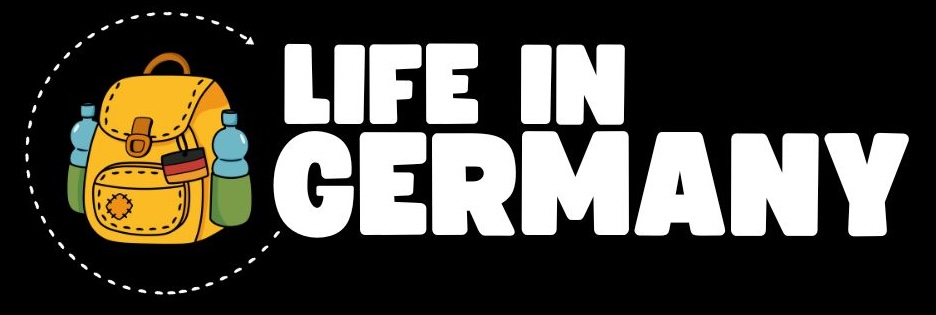Step-by-Step Guide: How to Find a Job in Germany as an International
Germany is an amazing destination for internationals seeking job opportunities. It is known for its strong economy, high standard of living, and excellent working conditions. Yay! But… navigating the job market as a non-German can be challenging and that’s where I’ve come to help!
First things first, take a deep breath. I know you’ve been told that finding a job in Germany can be difficult, but there are plenty of job openings in Germany that are looking for someone just like you. You just need to know where and how to find them.
We will go through everything about finding a job in Germany, helping you understand everything from visa requirements to salary expectations.
Don’t forget that foreigners often come with special skills – one of the most important skills we bring being multilingualism in a foreign language, so don’t forget to share this on your resume and cover letter.
How to Get Your Work Permit in Germany & Which One Do You Need?
If you’re a non-EU citizen, securing a job in Germany often begins with understanding the visa and work permit requirements. Here’s what you need to know:
Types of Work Visas:
- Job Seeker Visa: This allows you to stay in Germany for six months to find a job. Once you secure employment, you can apply for a work visa. Germany has also recently launched their new “job opportunity card/Chancenkarte” which you may qualify for as well!
- EU Blue Card: For highly skilled workers with a job offer that meets a specific salary threshold (€58,400* annually or €45,552* in shortage occupations as of 2024).
- General Employment Visa: For non-EU nationals with a concrete job offer and a relevant qualification.
- Freelancer Visa: For those wanting to work as self-employed individuals or freelancers.
For more detailed information on the types of work visas available, check out this comprehensive guide on visa requirements.
Application Process:
- You’ll need to gather necessary documents, such as your passport, job offer, proof of qualifications, and proof of financial resources.
- Many of these legal documents will need to be legally translated (make sure you’re getting a certified translation)
- Apply through the German embassy or consulate in your home country.
- Processing times can vary, so plan well in advance.
If you’re already in Germany, perhaps on a student visa, you may be eligible to apply for a work permit or a Blue Card directly from within the country.
You can get your professional qualifications, degrees, and certifications recognized through ZAB or the Chamber of Industry and Commerce. This is particularly important for healthcare and engineering positions.
How to Find a Job Opening in Germany
Finding the right job is the next big step. There are many jobs available, but are you ready for the best news?!
There are also a number of English-speaking jobs available and the openings are only increasing from here. However, I should probably mention that you may require a little bit of German just to get by in basic office chatter, and it’ll help you a bit more in daily life here in Germany as well.
TIP: If you want to learn how to speak German fast, take a look at some of the best ways to learn here.
I know despite my motivational speech, it can be extremely difficult to land a job here in Germany, especially if you don’t know where to start your search. However, if you’re well prepared and qualified for the positions you are applying for, the tips below can help you land your dream job.
There is certainly no shortage of job boards for German jobs, but let’s get you started on the right track.
Here are some of the best and most reputable job sites where other internationals like yourself have successfully landed a job.
Governmental Job Boards
German Job Boards
When I say German job boards, I mean ones that run in the German language. Please do not disregard these websites as these are the sites where you will likely find the most luck. Simply type the word “Englisch” or “English” in the search query with the job title you are looking for to find English-speaking job opportunities.
- Stepstone
- Monster Deutschland
- Indeed
- meinestadt.de
- JobScout24 (Jobs.de)
- Joblift.de
- Kimeta
- Stellenanzeigen.de
- WorkerHero
English Job Boards
English jobs are also posted on the English job board websites. These are often geared towards English-only and expat workers.
If you’re looking for more tips to find expat jobs, be sure to check out these expert tips for expats.
Social Media Sites
Social media websites are likely one of the easiest ways to find jobs online nowadays. The few mentioned below are where you will likely find the most success.
- Xing (Germany’s version of LinkedIn)
- Facebook Groups
Start-up Job Boards
There are a ton of new startups popping up around Germany and many of them prefer to run internationally which in turn also means there can be a lot more English-speaking job opportunities waiting for you in the startup world.
If you’re planning on living in Düsseldorf or around North Rhine-Westphalia (NRW), check out this resource for finding English-speaking jobs in NRW. For a broader range of job platforms, explore these 10 online platforms to find jobs in Düsseldorf.
Industry-Specific Websites:
- EURES: A portal for jobs within the European Economic Area (EEA).
- Make it in Germany: A government initiative offering resources and job listings for internationals.
- Glassdoor and Kununu: For company reviews and salary insights.
TIP: Networking in Germany is big! So make sure to attend industry events, job fairs, and networking meetups. You can also join professional groups on LinkedIn or XING related to your field and engage with German professionals on social media platforms.
Common Job Application Requirements in Germany
Applying for jobs in Germany involves specific requirements that might differ from your home country:
Essential Documents:
- CV (Lebenslauf): A structured, chronological CV with a professional photo and no gaps in employment.
- Cover Letter (Anschreiben): Tailored to the job, highlighting why you’re the best fit for the role. For more information, refer to this guide on writing the perfect German cover letter.
- References and Certificates: Include work references and copies of diplomas or certifications. Translations into German can be beneficial.
TIP: If you’re unsure about how to format your CV or resume, take a look at this guide to create a German-style resume or watch the video below ⬇️
The Format of a German CV (Lebenslauf)
- Personal Information: Name, address, phone number, email, and often a professional headshot.
- Professional Experience: Chronological listing of your work history, starting with the most recent.
- Education: Details of your academic background, including degrees and institutions.
- Skills and Languages: Include relevant technical skills, language proficiencies, and any certifications.
- Interests: Optional, but can add a personal touch.
- References: Generally not included directly in the CV but can be offered on request.
PRO TIP: Keep it concise (2 pages max), avoid flashy designs; a clean, professional look is preferred, and include a brief profile or career summary at the beginning.
Examples of German CV and CV Makers:
What is the job application process like in Germany?
Similarly to most countries, you’ll likely submit applications via email or online application portals. You can follow German norms by using polite, formal language and by being prompt in replying to interview requests. Don’t forget to always and employers after interviews (even in a follow-up email).
Do You Need to Speak German to Work in Germany?
Language proficiency can be a major factor in your job search. In many fields, especially those involving direct customer interaction (like healthcare, education, and public service), speaking German is essential. For technical, IT, and engineering roles, English may be sufficient, especially in multinational companies.
If you want a job in English, make sure to look for jobs in international companies, startups, or research positions where English is the working language. Berlin, Munich, and Frankfurt usually have more opportunities for English speakers.
TIP: Don’t make a list of excuses as to why you don’t have the time to learn German! Enroll in language courses, either at local schools or via an online program even before you get to Germany. Practice regularly through language exchanges or local meetups, watch German TV, and listen to German Podcasts.
Typical Salary Expectations in Germany
“How much can I expect to make here in Germany?” is always one of the top questions for internationals thinking of moving to Germany.
The good news is that Germany is ranked as one of the top 10 highest-paying countries in Europe.
As of January 2025, the minimum wage in Germany is 12,82€/hour. This rate increases with inflation year after year. However, if you’re moving to Germany in search of a career, then you’ll likely want to know how much of a salary you can expect.
The simple answer is… that entirely depends.
Average Salaries:
- Salaries vary widely by industry, experience, and location. For instance, IT professionals earn between €45,000 to €80,000 annually, while healthcare professionals might start around €35,000 to €60,000.
- The Federal Employment Agency provides insights into average earnings in different sectors in their Entgeldatlas.
- If you’re specifically looking for salary information in Düsseldorf, check out this guide on average salaries in Düsseldorf.
If you’d like to see exactly how much you should be making based on your qualifications, job title, and location in Germany, there’s one super easy way to do this. Take a salary test on StepStone! The website is in German, so a little translation will be required, but it’s entirely worth it.
Salary Negotiation Tips: Research average salaries for your role and experience level in the specific region of Germany where you’re applying. Don’t forget to consider the cost of living in major cities like Berlin, Munich, or Hamburg when evaluating offers. ⬇️
- Berlin: SalaryExpert PayScale
- Hamburg: SalaryExpert Payscale
- Munich: SalaryExpert Payscale
Understanding Gross vs. Net Salary (🇩🇪 = Brutto vs. Netto)
Salaries are typically quoted as gross (brutto) before taxes. Net (netto) salary will be lower after deductions for taxes, health insurance, and social security.
What Rights Do Employees Have in Germany? Vacation Days? Hours? Etc.
How many vacation days am I going to get if I work in Germany?
Well, the official answer is 20* (if you’re working a 5-day workweek). The minimum entitlement is 20 days of vacation per year (for a 5-day work week) or 24 days of vacation for a 6-day work week. However, many workers in Germany often get 24-30 vacation days from their employers.
How many hours a week do I have to work in Germany?
The typical workweek is 40 hours, and the Arbeitszeitgesetz (Working Hours Act) limits working time to 48 hours per week, including overtime, but allows flexibility for averaging it out over a period of six months. Employers must either compensate for overtime with additional pay or provide time off in lieu, depending on the contract or collective agreement.
Employees are entitled to 11 consecutive hours of rest between working days, and for a workday of 6 to 9 hours, employees are entitled to a 30-minute break; for longer shifts, a 45-minute break is required.
Does Germany Offer Sick Leave?
Employees have the right to up to 6 weeks of paid sick leave at full salary if they are unable to work due to illness. After six weeks, statutory health insurance covers a portion of the salary.
After three consecutive days of illness, employees must provide a doctor’s certificate (sick note) to their employer. However, employers can ask for one earlier if the contract stipulates this.
What is Maternity and Parental Leave Like in Germany?
Pregnant employees are entitled to 6 weeks of paid leave before the expected birth date and 8 weeks after childbirth (12 weeks in the case of multiple births or premature births).
Both parents can take up to 3 years of unpaid parental leave per child. During this time, employees’ jobs are protected, and they can return to their roles after the leave.
Parents may receive state-funded parental benefits (🇩🇪 Elterngeld), calculated based on their previous earnings, during their parental leave.
Are We Protected From Unfair Dismissal in Germany?
Employees have protection from unfair dismissal under the Kündigungsschutzgesetz (Dismissal Protection Act). For this protection to apply:
- The employee must have worked for the company for at least 6 months.
- The company must have more than 10 employees.
Valid reasons for dismissal include personal reasons (e.g., long-term illness), operational reasons (e.g., company restructuring), or conduct-based reasons. However, dismissals must follow a clear process, including advance notice and, in some cases, consulting the works council.
Employees are entitled to a notice period ranging from 4 weeks to several months, depending on their length of service.
Are There Any Other Worker’s Rights Worth Knowing About?
Works Council (Betriebsrat): Employees in companies with five or more employees have the right to elect a works council. This body represents the workforce in discussions with management regarding working conditions, dismissals, and company policies. Large companies (with over 2,000 employees) must allow employee representation on their supervisory boards, giving workers a say in key company decisions.
Equal Treatment Act (AGG): The Allgemeines Gleichbehandlungsgesetz (AGG) protects employees from discrimination based on gender, age, race, religion, disability, sexual orientation, or other characteristics. Discrimination in hiring, promotions, working conditions, or termination is illegal.
Health and Safety: Employers are required to provide a safe and healthy working environment, complying with the Occupational Safety and Health Act (Arbeitsschutzgesetz). This includes conducting risk assessments, providing appropriate training, and ensuring that the workplace meets legal safety standards.
Data Protection (we’re in Germany): Under the General Data Protection Regulation (GDPR) and German law, employees have the right to the protection of their personal data. Employers must handle employee data confidentially and can only use it for legitimate purposes.
Whistle Blower Protection: Employees are protected from retaliation if they report illegal activities or violations of workplace regulations. The Whistleblower Protection Act in Germany ensures that workers can safely report malpractice or criminal activity within the company.
Have questions about pension? Another video will be added soon! Or you can check out my YouTube channel to see if it’s already there!
Do You Want a Fixed-Term or Permanent Contract in Germany?
Germany offers various types of employment contracts, each with its implications:
Fixed-Term Contracts (Befristeter Vertrag):
- Often used for project-based roles or trial periods.
- Usually lasts between 6 months to 2 years, with the possibility of renewal.
- Employers must justify renewals; otherwise, they risk the contract becoming permanent.
Permanent Contracts (Unbefristeter Vertrag):
- Offers greater job security and long-term benefits.
- Typically includes a probationary period (6 months) during which either party can terminate the contract with shorter notice.
What’s the work culture like in Germany? Punctuality is highly valued; being on time is crucial. Hierarchies tend to be respected, but workplaces are generally collaborative. Work-life balance is important, with a clear distinction between work and personal.
Have you considered working as a freelancer or being self-employed?
This is how I’ve made my career in Germany working for myself ⬇️
Need more support looking for a job?
If you’re already located in Germany, consider going to the Agentur für Arbeit office (Federal Employment Agency) in your city. They can help set you up for success and find a job that works for you.
If you’re interested in landing a job visa before you arrive in Germany, then it’s best to contact a job recruiter or personal career coach for support.
Remember, it is so important to learn about cultural differences, even when navigating conversations when working in a new country. We go over all of this and more job tips in our Welcome Program.
*Numbers are always subject to change
Digital Support

Free 12-Step Checklist

1-on-1 Video Call

Life in Germany Welcome Program

Life in Germany for Kids
EXCELLENTTrustindex verifies that the original source of the review is Google. "Life in Germany" is an incredibly useful tool for those who want to move to Germany, for any reason. The services offered are really valuable; all the information -from learning the language, to the bureaucracy, to the most enjoyable aspects such as leisure, food and drink, shopping, travels- are clearly delivered and make life for expats so much easier and pleasant. Articles are also updated often and fact-checked. Also, I strongly recommend to check out "Life in Düsseldorf", if you're moving to this city, from the same creator, Jenna, which with her hard work, dedition and kindness has been helping hundreds of workers and students from all over the world and with different backgrounds to make their dreams true. Thank you, Jenna. Keep up with the great work!Trustindex verifies that the original source of the review is Google. ExcellentTrustindex verifies that the original source of the review is Google. I love every information. Keep it up!Trustindex verifies that the original source of the review is Google. Thanks a lot dear for preparing the checklist for all of us.Verified by TrustindexTrustindex verified badge is the Universal Symbol of Trust. Only the greatest companies can get the verified badge who has a review score above 4.5, based on customer reviews over the past 12 months. Read more
Get Culturally Ready
I’ve spent the last 10 years collaborating with experts in various fields and perfecting the process for moving to Germany. However, that doesn’t mean my process was easy! I have so many stories to tell and tips to share.




